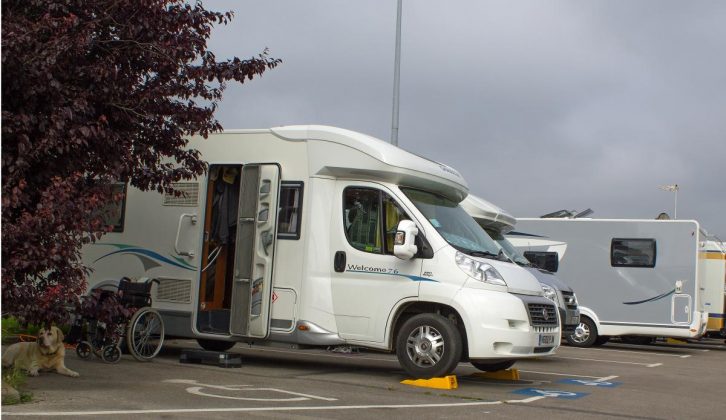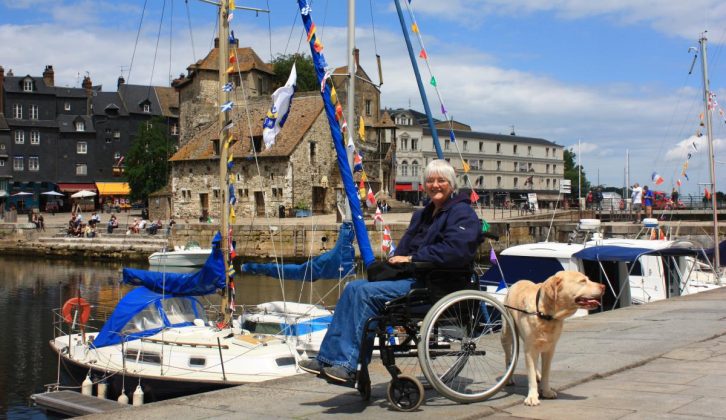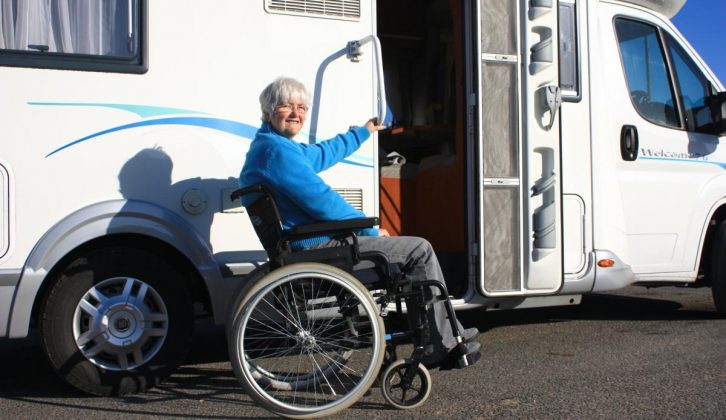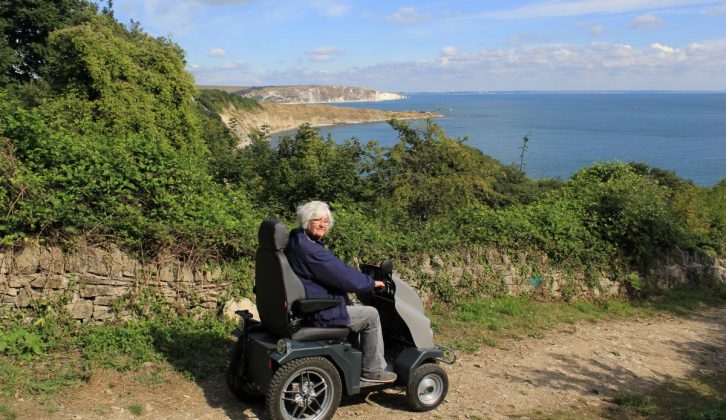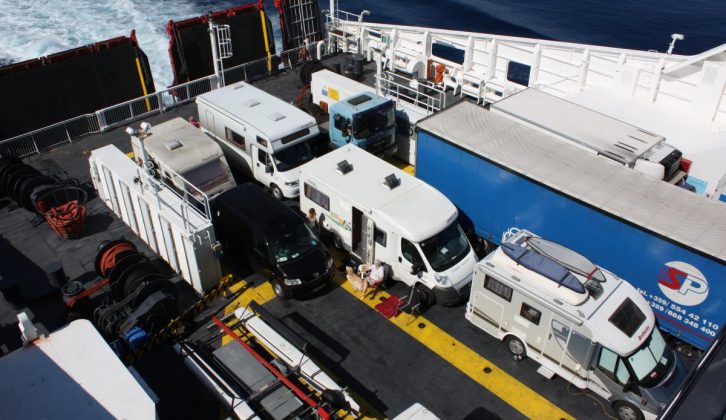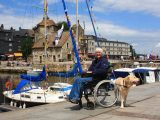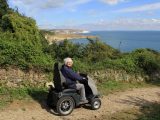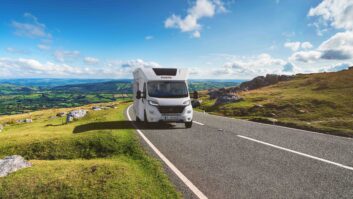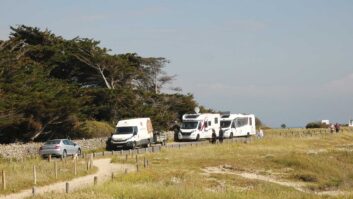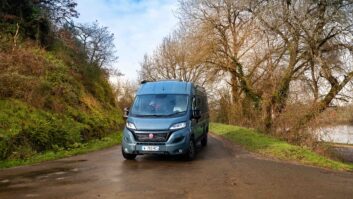Planning a holiday is relatively easy, right? Simply choose your destination and the time you want to travel, and that’s more or less it. But what if you have a disability and are a wheelchair user – what more do you have to consider?
If you travel in a motorhome, holidays for disabled tourers shouldn’t need too much extra planning. If you’re in your own ‘van there’s no need to worry whether hotel room doors are wide enough for your wheelchair, what mobility aids a new environment might require, if there are steps up to reception or whether a lift is working. However, you will need to make the right choice of ’van, Practical Motorhome reader team member Vera Whalley tells us.
The motorhome that her and husband Peter tour in, a Chausson Welcome 76, has a relatively low entrance step and she also carries a wide aerobic step that splits the distance between the ground and the entrance unit. Inside, the layout is relatively open and has a flat floor from the front lounge area all the way to the rear bathroom, and the fixed bed is low enough for her to sit on and use the dressing table mirror – in fact, for her, a fixed bed is a must. As is a spacious washroom.
Wheelchair storage is another consideration on disabled holidays. A fold-up example tends to fit easily under a fixed double bed, providing there is an exterior hatch. Alternatively, it can be carried on a cycle rack or back box, both commonly fitted motorhome accessories. And of course, being in your own ‘van, your own home from home, means any mobility aids you need will likely already be fitted.
So that’s the ‘van taken care of – now back to trip planning. If in the UK, Vera looks for sites in or on the edge of towns, meaning she can walk (or be pushed) into the village or town on safe pedestrian routes or paths. It is even better if there’s a nice pub nearby!
Another thing Vera looks for is a campsite with hardstanding pitches, and preferably Tarmac roads. But you might be interested to learn that she’s less concerned by whatever dedicated disabled facilities a campsite may have, preferring to use those in her own ’van. If you have your own mobility aids and motorhome accessories installed, you might want to do the same on your holidays.
When looking for top touring destinations, Vera and Peter usually look for areas that offer disability-friendly activities, such as the off-road ‘Tramper’ scheme operated by Countryside Mobility.
“This allows me to enjoy the countryside and go out walking with my husband,” says Vera. “We also joined the National Trust – this not only gives us free parking at its many sites, but also means that, for the cost of my membership, we can both look around the houses and gardens by using the additional, free carer’s card.”
Vera also cites the Rough Guide to Accessible Britain as a useful book, giving details of suitable attractions and any discounts they offer. She adds that tourist information offices are normally very helpful and provide details of accessible, disabled holiday friendly places of interest in or around towns and villages. And while disabled access in the UK is improving, Vera recommends that you phone ahead as there’s often very little parking available for motorhomes.
Heading abroad? Vera and Peter usually cross to Calais via the Eurotunnel. “It is so much easier for me than the ferry,” she tells us. “I can stay in the motorhome and the journey only takes 35 minutes.” On ferries such as those from Italy to Greece, she always uses the ‘camping on board’ option. “This allows us to stay in our motorhome and electric hook-up is provided,” Vera explains. “You cannot use gas cooking facilities, but if you have something like a Remoska you can be fully self-sufficient. We tend to make our own drinks, but Peter goes to the restaurant and brings meals back for us to eat.”
Vera and Peter don’t plan much more than their Channel crossing when touring, preferring to go where the mood takes them – just like many other motorcaravanners. And why not? Disabled holidays shouldn’t mean compromised holidays.
“Being disabled and in a wheelchair doesn’t stop you from travelling where you want, especially in a motorhome,” says Vera. “Providing you have a willing partner and an equally willing attitude to life, the world is waiting to be discovered.”
Have you been inspired by Vera’s story or do you want to know more about disabled holidays and touring with a wheelchair? Don’t miss the seven-page mobility special in the July 2014 edition of Practical Motorhome, on sale now!
If you have a disability and are a wheelchair user, what more do you have to consider?
